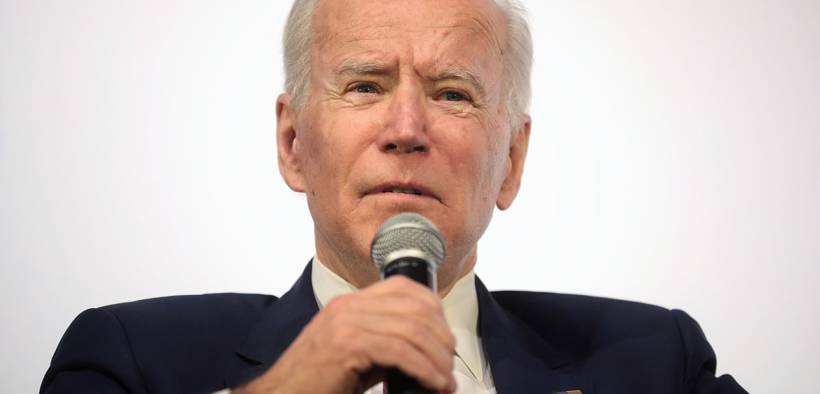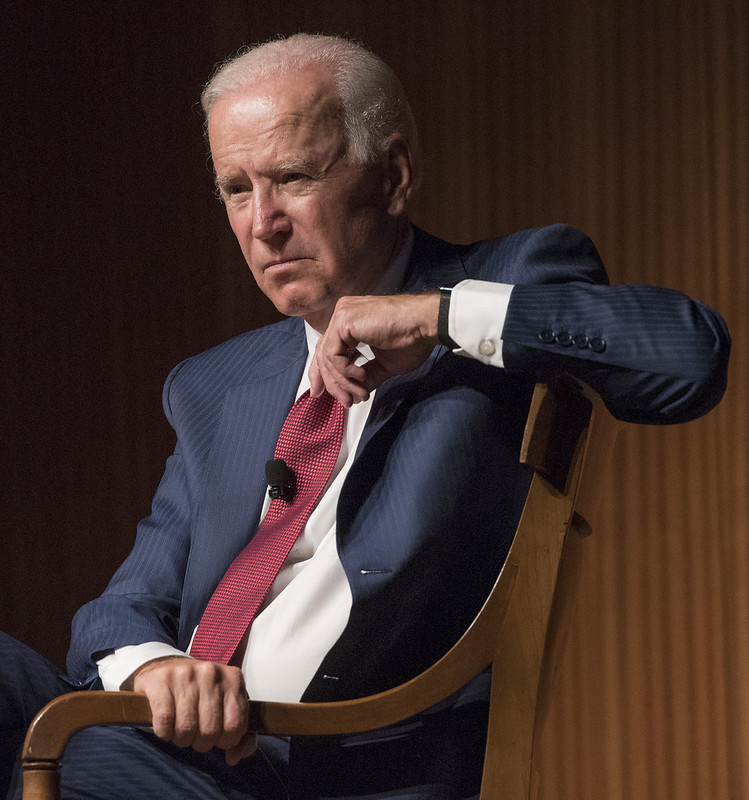We Need More than Light, Joe


Joe Biden began his acceptance speech on the final night of the Democratic National Convention with a quote by Ella Baker, longtime civil rights and human rights activist: “Give people light and they will find a way.” For Biden, it was a call for his leadership as a contrast to the anger, divisiveness, and fear characteristic of the “darkness” of Donald Trump’s presidency.
That Biden even invoked Baker is seen by many as progress, and the Democratic Party presidential nominee has been widely lauded for the tone he struck in his remarks. Still, one wonders what Baker would’ve thought about the elevation of Biden to the top of the party ticket in 2020 amid ever-widening economic and wealth inequality, social unrest, and a health crisis disproportionately affecting blacks. While Biden’s words were a success by virtue of being devoid of sour notes, they, like the convention preceding them, were also largely devoid of substance.
In all, the Democratic National Convention felt like a four-day sales pitch on Biden himself. Old footage and photos of Joe punctuated segments on pressing issues such as gun control, immigration, and women’s rights. There was Joe with Barack Obama, talking about matters of great import. There was ol’ Amtrak Joe taking the train like a regular, well, Joe. Meanwhile, the laundry list of speakers at the event attested to his fundamental decency, save for Bob King, former president of the United Auto Workers union and Rep. Alexandria Ocasio-Cortez, who nominated and seconded Bernie Sanders for the Democratic Party presidential nomination as part of convention procedure, respectively.
Perhaps amid a global pandemic, it would be unrealistic to expect anything other than a somber mood from these proceedings. Still, what usually amounts to a celebration of the Democratic Party and its stated values felt heavy indeed. Furthermore, attempts at levity, when made, largely missed the mark. Not even the likes of Night Four emcee Julia Louis-Dreyfus could make the most of her material, much of it jabs at the Republican Party nominee. For all the inspiring profiles of everyday party supporters and the struggles they have fought to overcome, there were uninspired calls to arms from the various political figures gracing the broadcast and their own failed punchlines. Sen. Klobuchar, I implore you, do not quit your day job.
Biden’s acceptance speech, the keynote address of the whole event, put a cap on the convention’s theme of fighting for the heart and soul of America, replete with generalities and platitudes. Name-checking Franklin Delano Roosevelt; Barack Obama; Jill, his wife; his father and other members of the Biden Family; Kamala Harris; George Floyd; and John Lewis, Biden waxed political on the importance of delivering on America’s promise and framed this election in existential terms.
Discussion of policy specifics, as they have been since the start of his campaign, were sparing. Biden touched on and touted plans for America’s COVID-19 response, rebuilding the country’s infrastructure, upholding the Affordable Care Act, lowering drug prices, reducing student debt, affording access to child and elder care, raising the minimum wage, addressing climate change, empowering labor unions, closing tax loopholes, and preventing cuts to our social safety net, among other things. On paper, it sounds fantastic. Then again, it always does.
Biden closed with these thoughts:
This is our moment to make hope and history rhyme with passion and purpose. Let us begin, you and I together, one nation under god, united in our love for America, united in our love for each other, for love is more powerful than hate. Hope is more powerful than fear, and light is more powerful than dark.
This is our moment. This is our mission. May history be able to say that the end of this chapter of American darkness begin here tonight as love and hope and light join in the battle for the soul of the nation. And this is a battle we will win, and we’ll do it together. I promise you.
Thank you and may God bless you, and may God protect our troops.
Biden’s closing comments, borrowing from the sentiments of Irish poet Seamus Heaney, are not unlike those professed by Hillary Clinton four years ago in her own acceptance speech. Love is more powerful than hate. Hope is more powerful than fear. Light is more powerful than dark. Yes, this is all well and good.
Again, though, how does it translate to a path forward? “Give people light and they will find a way.” Right, but once the metaphor ends, where does that leave us, the people? We need more than light-and-dark imagery to survive. After all, that’s why we’re presumably lining up to elect you to represent us.
Here’s the thing: I recognize that many Democrats want to take what Joe Biden is saying at face value. And I agree, at least superficially, with the message of positivity that Biden is selling. I want a United States of America that embraces a spirit of love and of hope and of spiritual enlightenment rather than an America which veers off into fascism under Donald Trump.
If we’re going to nitpick somewhat, we might take issue with framing things purely in a light-vs.-darkness paradigm. Much of the U.S.’s past and present has reflected the darkness of injustice for large swaths of its population. Like our shadows, the inequities of the American experiment are inextricably linked with its history. Seeking to move forward without a meaningful recognition of where we’ve been, where we are, and how far we have to go does us all a disservice. How else to explain getting President Trump after the “hope and change” espoused by President Obama?
I asked earlier what Ella Baker would think of Joe Biden’s presidency because Baker was a strong advocate of participatory democracy. As she was once quoted, “Strong people don’t need strong leaders.” With that, she and others of a like mind emphasized direct action, grassroots organizing, and the minimization of hierarchies (especially those dominated by males) that weight movements too strongly at the lead. It’s the kind of energy that informed Bernie Sanders’s presidential campaigns, specifically the slogan “Not Me. Us.”
Accordingly, while Biden’s use of Baker’s words are seen widely as a win, and while the Democratic National Convention hammered home the idea of Joe Biden the legislator and vice president as a man of the people who always made time for others, Biden’s current profile as a candidate doesn’t match his rhetoric.
2020 Joe Biden, no longer middle-class, doesn’t exactly epitomize the spirit of participatory democracy. Unlike his former rival Bernie, who wore his low individual contribution dollar amount as a badge of honor, Biden’s fundraising model is way too indicative of the Democratic Party’s top-down, big-ticket preferred method.
Even the language of Biden’s acceptance speech is grounded in the me, not the we. My economic plan. I’ll stand up to these dictators. At one point, he says outright, “I’m not going to have to do it alone because I’ll have a great vice president at my side.” Oh, sure, Biden says in closing that “this is a battle we will win, and we’ll do it together.”
Barack Obama said that, too. When the dust settled and the votes were counted, however, energized progressives were instead shunned by the Obama administration and the man embraced the neoliberal trappings of his predecessors. For those of us who believed in the promise of “Yes, We Can!” it’s a lesson we’ve learned the hard way, but learned it we have.
As Joe Biden said in his speech, “This is our moment.” The moment, however, demands more than just the hollow words of yesteryear and the idea that we should take a backseat while a messianic leader solves all the world’s ills. Give us the light and we’ll find the way. The old way of doing things isn’t cutting it anymore.







